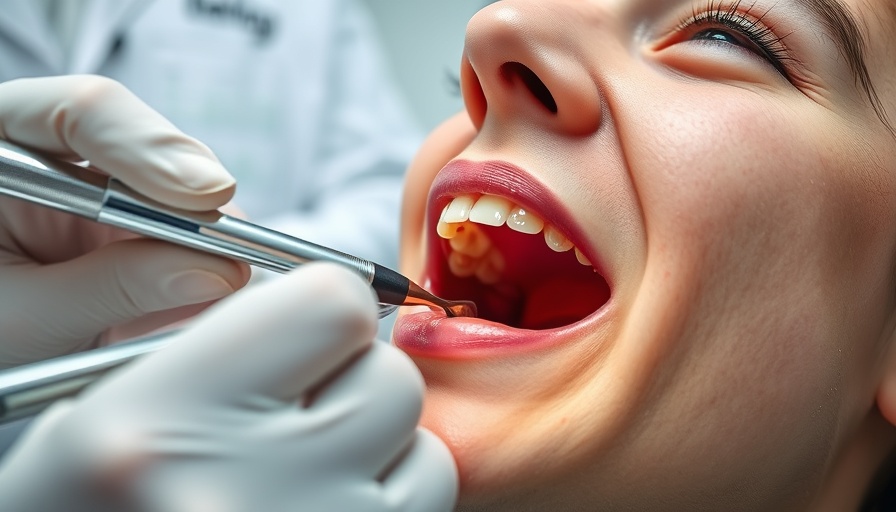
Understanding Tooth Mobility: A Call for Proactive Care
For adults, the stability of teeth is a hallmark of good oral health. However, when teeth start to feel loose or wobbly, it can be a sign of underlying issues that require immediate attention. Tooth mobility—especially outside of childhood—should never be ignored. For adults, it serves as a wake-up call to take proactive measures in dental care, understanding its potential causes, and recognizing the need for timely professional intervention.
The Alarming Rise of Gum Disease
Your gums play a crucial role in maintaining your teeth's stability. Gum disease is one of the primary culprits behind tooth mobility. Starting with gingivitis, which may present as soreness and redness, this condition can progress to periodontitis, where the supporting bone is affected. Early signs are often reversible with diligent oral hygiene and professional cleaning from a dental hygienist. Neglected gum disease, however, can lead to severe consequences, including tooth loss. Therefore, adults should prioritize routine cleanings and maintain consistent oral hygiene practices to counteract this prevalent issue.
Injuries and Their Implications on Dental Health
Accidents happen, and when they do, they can lead to trauma that affects the integrity of your teeth. A sudden blow to the mouth or a fall can render a tooth loose, thus necessitating immediate dental evaluation. Depending on the severity, treatments can range from restoration to extraction. Options such as implants or dentures can restore function and aesthetics, but prevention through caution and protective measures during risky activities is always preferable.
The Importance of Correct Bite Alignment
Malocclusion, or misaligned teeth, isn't just a cosmetic issue; it can exert undue stress on your teeth, leading to mobility issues over time. Forceful biting can exacerbate the problem, making it vital to consider orthodontic interventions. Innovations like Invisalign provide discreet options for correcting alignment, thus preventing potential mobility issues while promoting a healthier bite.
Health Conditions Influencing Tooth Stability
Conditions such as diabetes and osteoporosis are critical to consider because they may predispose individuals to tooth mobility. Medications associated with these conditions can also have adverse effects on oral health. Therefore, open communication with healthcare providers about these issues is essential. Regular consultations can lead to tailored care strategies that take individual health circumstances into account.
Proactive Strategies to Maintain Oral Stability
Understanding the factors that contribute to tooth mobility empowers individuals to take charge of their dental health. Regular dental visits, maintaining excellent oral hygiene, using appropriate dental products, and being cognizant of one's overall health play vital roles. Professional support from dental hygienists and dentists will not only ensure the cleanliness of teeth but also provide a safety net against mobility issues.
Your Call to Action: Prioritize Your Oral Health
Recognizing the signs of tooth mobility and acting promptly can safeguard your smile and overall health. If you notice any symptoms of gum disease or experience any looseness in your teeth, don’t hesitate to schedule a comprehensive dental examination. Your oral health is an integral part of your overall well-being, and it deserves attention before any issues escalate.
 Add Row
Add Row  Add
Add 




Write A Comment